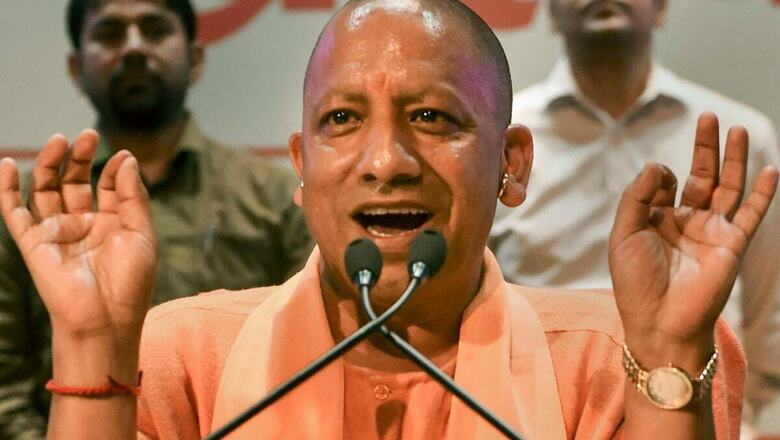
views
In keeping with the political grain of the ruling order in Uttar Pradesh, like its predecessors, the Yogi Adityanath dispensation resisted calling the elections to the state’s rural bodies. UP’s political parties, which treat every election like a carnival, were curiously reluctant to hold gram panchayat elections which are invariably scheduled close to an Assembly poll and, therefore, regarded as a measure of their strengths and weaknesses. These elections, barring those to elect zilla panchayat representatives, are not fought on party symbols. Expectedly, the major players hotly contest the results, because like it or not, the outcome loosely defines political allegiances in the villages.
In February this year, the Allahabad High Court directed the state election commission to conduct the rural polls by April because the tenure of the panchayats, numbering nearly 60,000, ended in December. The three-tiered process will elect representatives to the vikas khands or development blocks and the gram sabhas or village assemblies, the kshetra or area panchayats, and the zilla or district panchayats. The court had similarly intervened in 2005, when Mulayam Singh Yadav, the chief minister of the day, tried to put off the exercise, two years before the Assembly elections.
How important are these elections?
Most politicians claim that the village pradhan or mukhiya’s role has become less salient as the under-empowered groupings of the past have become politically discerning and less prone to allow their locally elected agents to dictate electoral choices. This isn’t entirely true because panchayat polls always acquire a momentum of their own, drawing the parties in the heat and dust.
An article, “The 2015 Gram Pradhan Elections in Uttar Pradesh: Money, Power, and Violence” by Professor Siddhartha Mukerji (Economic and Political Weekly, 16 June, 2018), framed a perspective for their salience. “They show how the social and political spheres have undergone a noticeable transformation in villages in the recent past.” One of the new features, says Mukerji, is the integration of village life with the urban economic processes associated with globalisation and the social and economic mobility they provided. While migration has brought about lifestyle changes, panchayat elections are still determined by caste, wealth (old and new) and violence. Many of UP’s infamous “dabangs” started out as pradhans. Inevitably, the changing dynamics pit the entrenched caste leaders against the aspiring wannabes because while the former will not vacate their turf, the latter crave for a larger share of the power pie. Politics in UP begins in the little world of the village before the gaze turns on Lucknow and Delhi.
When the court order came, one of Adityanath’s first moves was to undo the preceding Samajwadi Party (SP) dispensation’s reservation criteria in the panchayats. He adopted a more flexible policy. Instead of reserving seats for designated categories in perpetuity, the government decided if a seat was earmarked for the Scheduled Castes in the 2021 election, it could go to another reserved category in the next one, the Other Backward Classes (OBC) or women. Adityanath’s adversaries accused him of being “pro-upper caste”. The rotational sharing stonewalled the chances of a reserved class acquiring control over the levers of local power and creating its network of power and patronage that used to be the exclusive prerogative of the Brahmins, Rajputs and Banias. If an OBC or Dalit representative upended the traditional power structures in her five-year tenure, her efforts can be dismantled by the successor the next time.
In the limited but tightly guarded space that the pradhans and block pramukhs preside over, it’s next to impossible to mount a sustained challenge. Years of affirmative action in the southern states have liberated the targeted beneficaries, including Dalits and women. In UP, a Dalit, OBC or a woman, legitimately elected to a rural body, has little leeway. There’s always a hidden or not-so-hidden but powerful proxy who calls the shots. In the south, women pradhans and block chiefs have brought about little revolutions in the spaces they manage, whether it is in water management and setting up cooperatives. In UP, women representatives are uncharitably called “panch patti” or “panch pitta” to signify that the real power rests with the husbands and fathers.
Getting Campaign-ready
Among UP’s major parties, the BJP alone has plunged into the impending panchayat polls with the diligence and focus it brings to any form of electioneering. The BJP regards it as a “curtain raiser” to the 2022 Assembly polls, a suggestion the SP baulked at while the Bahujan Samaj Party, the third angle of the UP triangle, kept typically mum. The SP’s contention was, rather than expend time and energy on the rural polls, it would conserve them for the big battle. But party insiders conceded that the SP was tardy in taking on the BJP for the past four years. The panchayat elections might expose more inadequacies than it can cope with and demoralise the cadre.
Leaving little to chance, the BJP embarked on a “rural connect” programme which Radha Mohan Singh, a former union minister and Bihar MP who’s the designated UP in-charge, is monitoring along with the state functionaries. The BJP’s fear was the SP which prides itself as the authentic rural entity and the rest as “pretenders” might propagate the perception again. The SP plans to flag Adityanath’s seat de-reservation move as an issue that militated against the rights of the OBCs and Dalits. Long dubbed “urban” and “upper caste”, the BJP’s recent spectacular wins in UP have demolished the myth. However, if the SP and the BSP play up Adityanath’s alleged pro-Rajput bias in the panchayat polls, it might take away from the BJP’s dream electoral record.
In western UP, for long a BJP bastion even when it was down-and-out, the Rakesh Tikait-spearheaded farmers’ protests will put to test the support that it commanded from the dominant Jat caste. The Jats are the bulwark of the agitation. The BJP cannot lose the votes of a community that’s influential across a vast swath.
Read all the Latest News, Breaking News and Coronavirus News here













Comments
0 comment